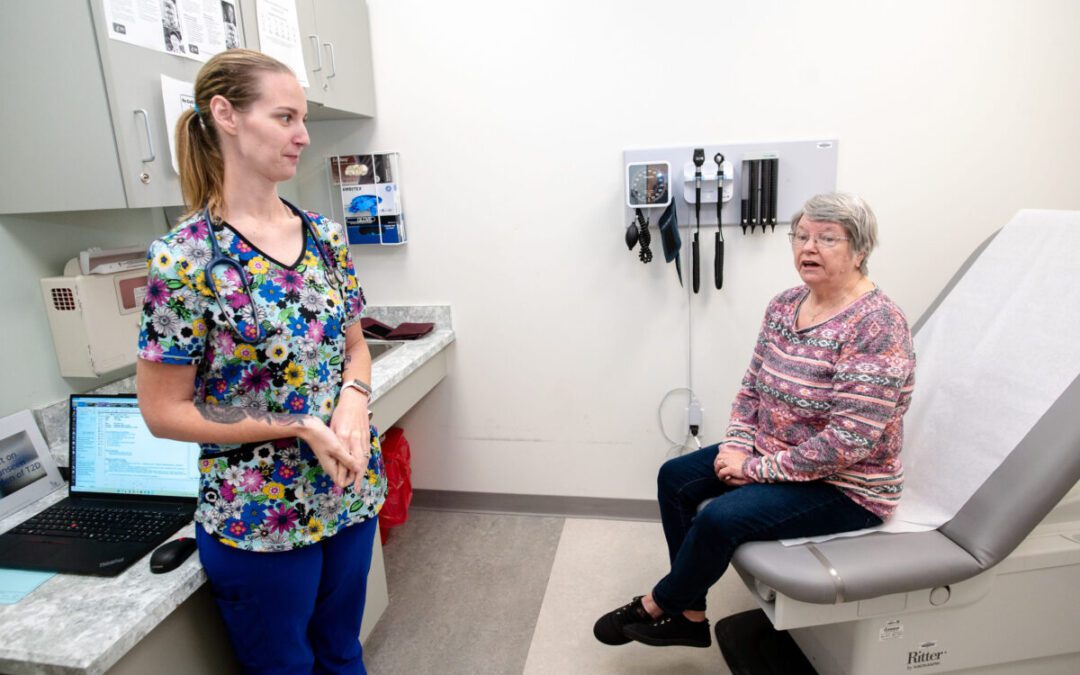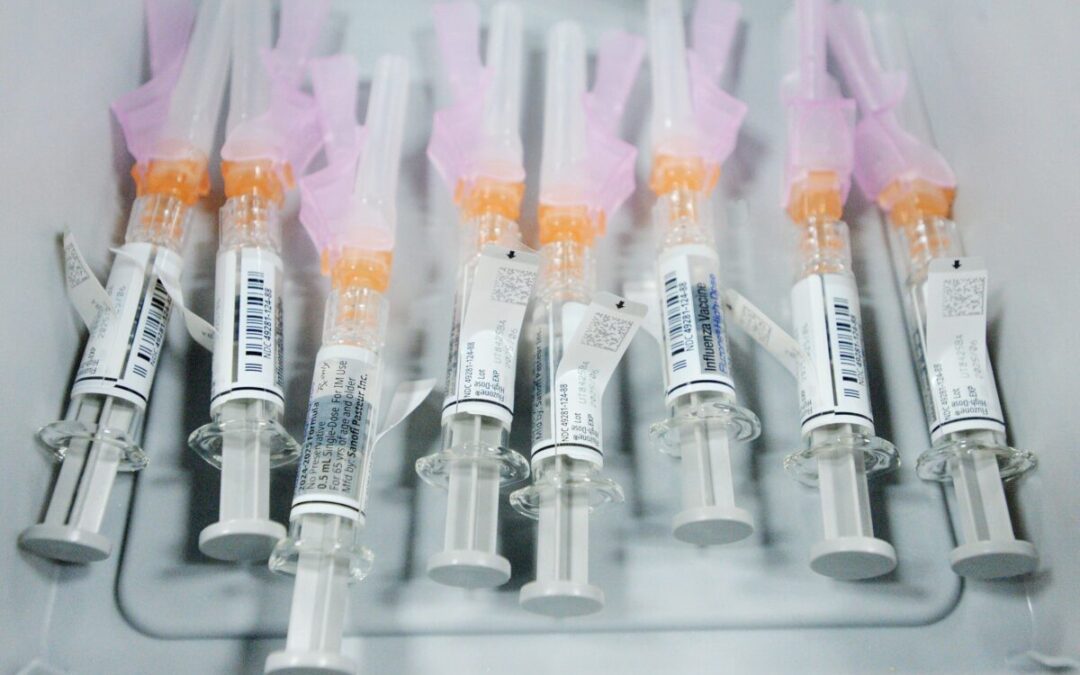One of the largest nursing home operators in Pennsylvania filed for bankruptcy Wednesday, listing the commonwealth among its biggest unsecured creditors.
Based in Kennett Square, Chester County, private equity-backed Genesis HealthCare said in a statement Wednesday that the petition for Chapter 11 bankruptcy protection would permit it to pursue a reorganization plan with minimal disruption.
It said the reorganization would allow staff to retain their positions, pay and benefits so that patients and residents would continue to be served by providers they trust. Genesis operates 42 facilities in Pennsylvania and a total of 175 across the country.
“We assure all those who rely on us for care that we remain fully focused on and committed to providing the high-quality care you have come to expect, and we thank you for your continued confidence,” Lauren Murray, the company’s chief operating officer, said.
A Shapiro administration official said Thursday that Genesis HealthCare’s bankruptcy is another example of a bad outcome when private equity investors become involved in health care.
“Governor Josh Shapiro strongly believes that private equity should get out of the nursing facility business in Pennsylvania,” Department of Human Services Press Secretary Brandon Cwalina said.
Among his budget priorities this year, Shapiro proposed a plan that would prevent investors from stripping money and resources from nursing facilities, community hospitals and other health facilities. The measure is awaiting action in the state Senate,
In April, Crozer Health System closed its two remaining hospitals in Delaware County after its parent company Prospect Medical Holdings declared bankruptcy. Efforts to keep Crozer-Chester Medical Center and Taylor Hospital open were unsuccessful, leaving the suburban Philadelphia county of nearly 600,000 people with only two emergency rooms.
Previously owned by Los Angeles-based private equity firm Leonard Green & Partners, Prospect was saddled with $1.3 billion debt as its owners took more than $645 million in dividends and fees, according to ProPublica.
The Genesis bankruptcy filings list $708.5 million in secured debt, which the company proposes to satisfy through the sale of its assets to a “stalking horse bidder” affiliated with the primary secured creditors. The bankruptcy petition also lists nearly $800 million in unsecured debt to creditors who include the Internal Revenue Service, vendors and the recipients of legal settlements.
Pennsylvania is Genesis’ fourth largest unsecured creditor with a $58 million claim for taxes the state collects from some providers participating in Medicaid.
In its bankruptcy filings, Genesis asks the court to approve $30 million in debtor-in-possession financing from its primary creditors that would allow the company to continue operating, pay its employees and maintain business relationships during the course of the bankruptcy proceedings.
The company’s bankruptcy comes amid uncertainty over how the federal budget reconciliation’s $1 trillion cut to Medicaid over ten years will affect providers across the country. The effect on the state budget, which was due June 30, is also uncertain. Shapiro noted Monday that Pennsylvania would lose billions it can’t afford to backfill.
The state Department of Human Services says cuts could result in more than 310,000 Pennsylvanians losing Medicaid coverage. Some 270,000 could lose access to marketplace plans or face steep premium increases.
Advocating for Seniors, an association of long-term care providers across the country, said underfunding in Pennsylvania coupled with reductions in the state’s Medicaid reimbursement rates are a major cause of Genesis’ financial distress.
DHS recently proposed reimbursement rates for nursing facilities, called the budget allocation factor, that would provide long-term care providers only 80% of their calculated reimbursement costs. Those are already based on audited costs and the care needs of patients, according to the association.
“Long-term care facilities cannot keep their doors open in this chaotic and unreliable environment,” said Brittany Crampsie, spokesperson for Advocating for Seniors
Dropping reimbursement rates, staffing ratios that facilities struggle to meet and a late state budget with no certainty about funding for nursing homes will put residents in peril, Crampsie said.
“Facilities are losing hundreds of thousands of dollars every year. Some are closing. Many more are considering that option. We need increased funding in the budget now,” she said.
Cwalina said DHS works to ensure Medicaid recipients have access to quality nursing facility services while operating within the funding the General Assembly appropriates in the state budget. He said it’s inaccurate to say the budget allocation factor is what is pushing nursing facilities to the brink of closure.
The process for setting the rates and the use of the budget allocation factor is set in state law and the proposed rate assumes that funding in the 2024-2025 budget will remain level. If the amount of funding changes, the rates would be revised.
“In the case of Genesis HealthCare, this is another private equity-backed health care organization that has bled dry by greed and mismanagement. Genesis owes the Commonwealth of Pennsylvania – and its taxpayers – $58 million, and like every taxpaying-resident of Pennsylvania, they should pay their fair share,” Cwalina said.
Last month, the state House passed legislation proposed by Shapiro to give the state Attorney General’s Office oversight of mergers and acquisitions involving health care companies, prohibit sale-lease back agreements, and require health care facility buyers to submit financial and operational disclosures to the state.
Less than a decade ago, Genesis was the largest skilled nursing operator in the nation, with over 500 facilities and 60,000 beds in 30 states, according to a court filing. The growth strategy wasn’t profitable and it began to divest unprofitable facilities.
The COVID-19 pandemic struck another blow and Genesis narrowly avoided bankruptcy in 2021 with a $100 million injection of capital from private equity firm ReGen Healthcare.
It also renegotiated its master lease with landlord Welltower, a health care focused real estate investment trust, to which the company owes more than $112.6 million, according to court documents. Welltower is the largest owner of senior housing facilities in the United States, according to Hindenberg Research, which specializes in forensic financial research.
The company’s legacy costs, which include $8 million a month in settlement and defense costs associated with personal injury and wrongful death claims, proved insurmountable, the court papers say.
Genesis said in a court filing that in the first half of the year, it has engaged in negotiations with its creditors to negotiate the terms of a “comprehensive solution” and entered bankruptcy with a “clear and defined exit path.”










